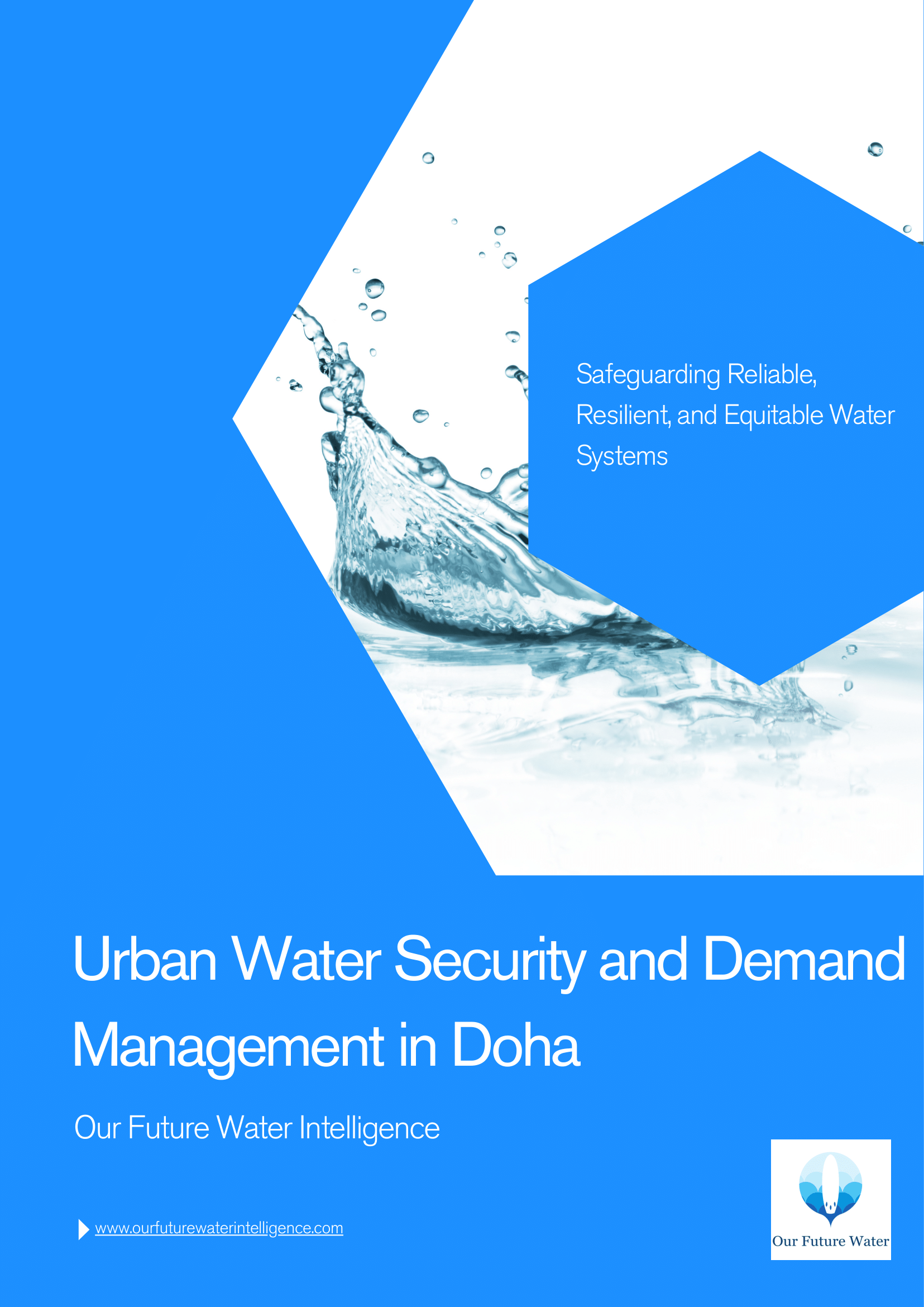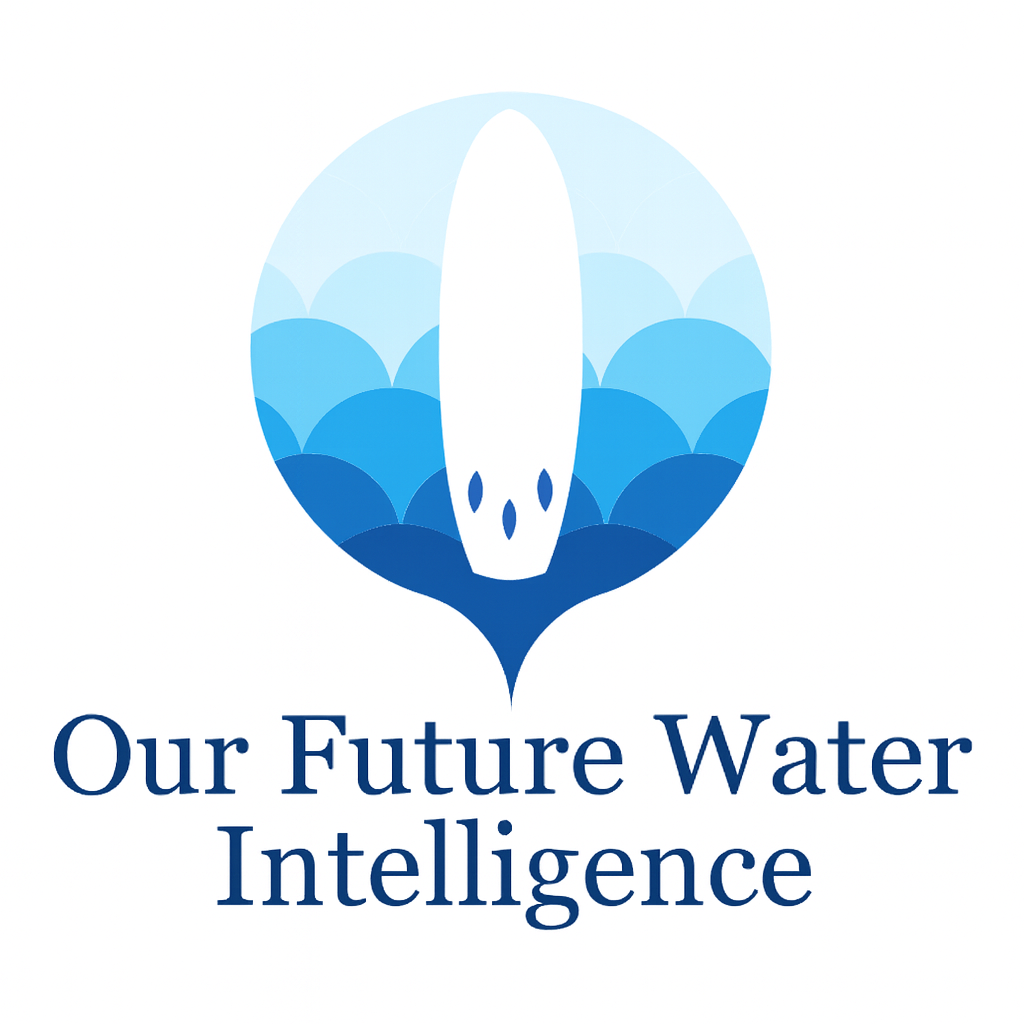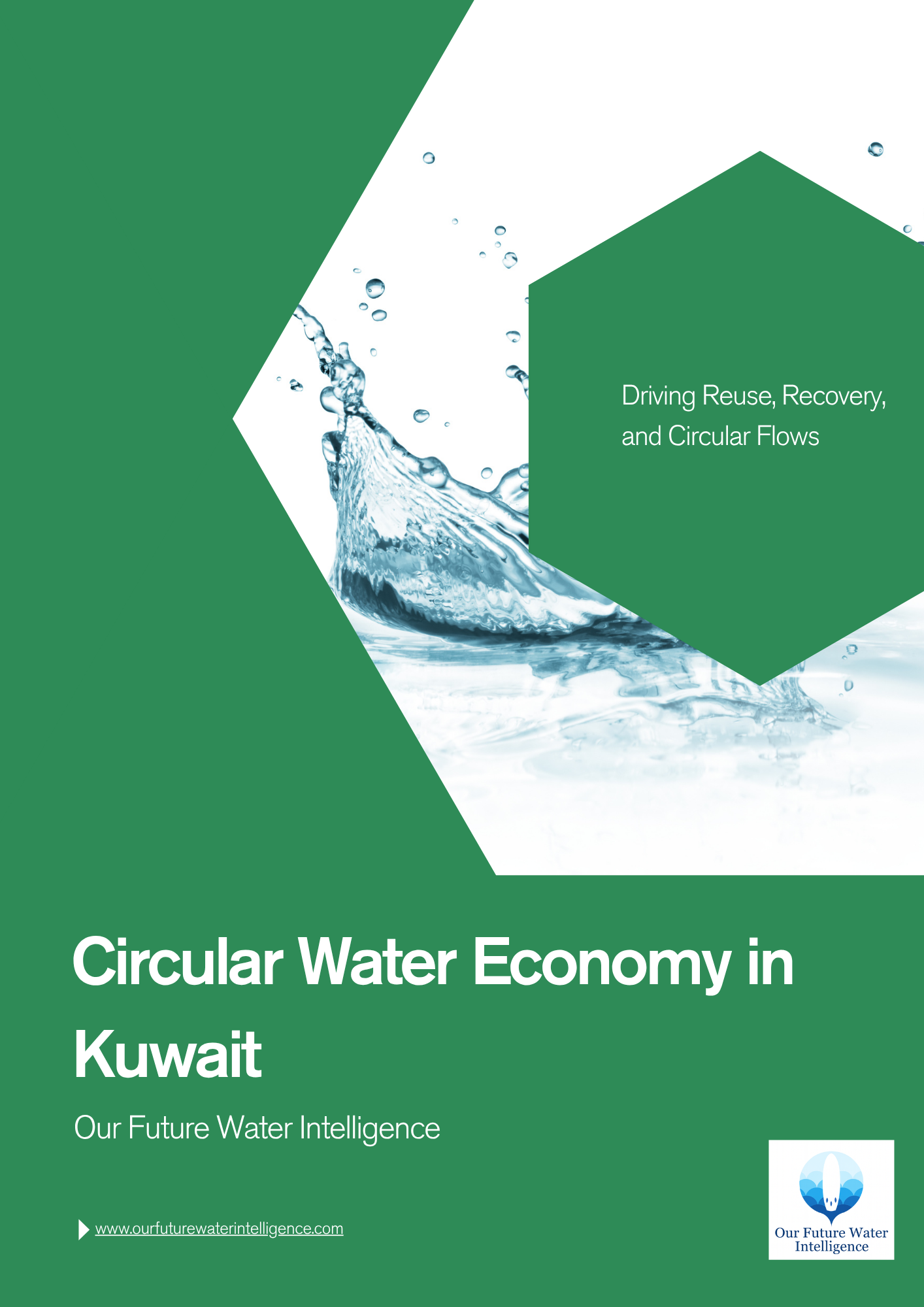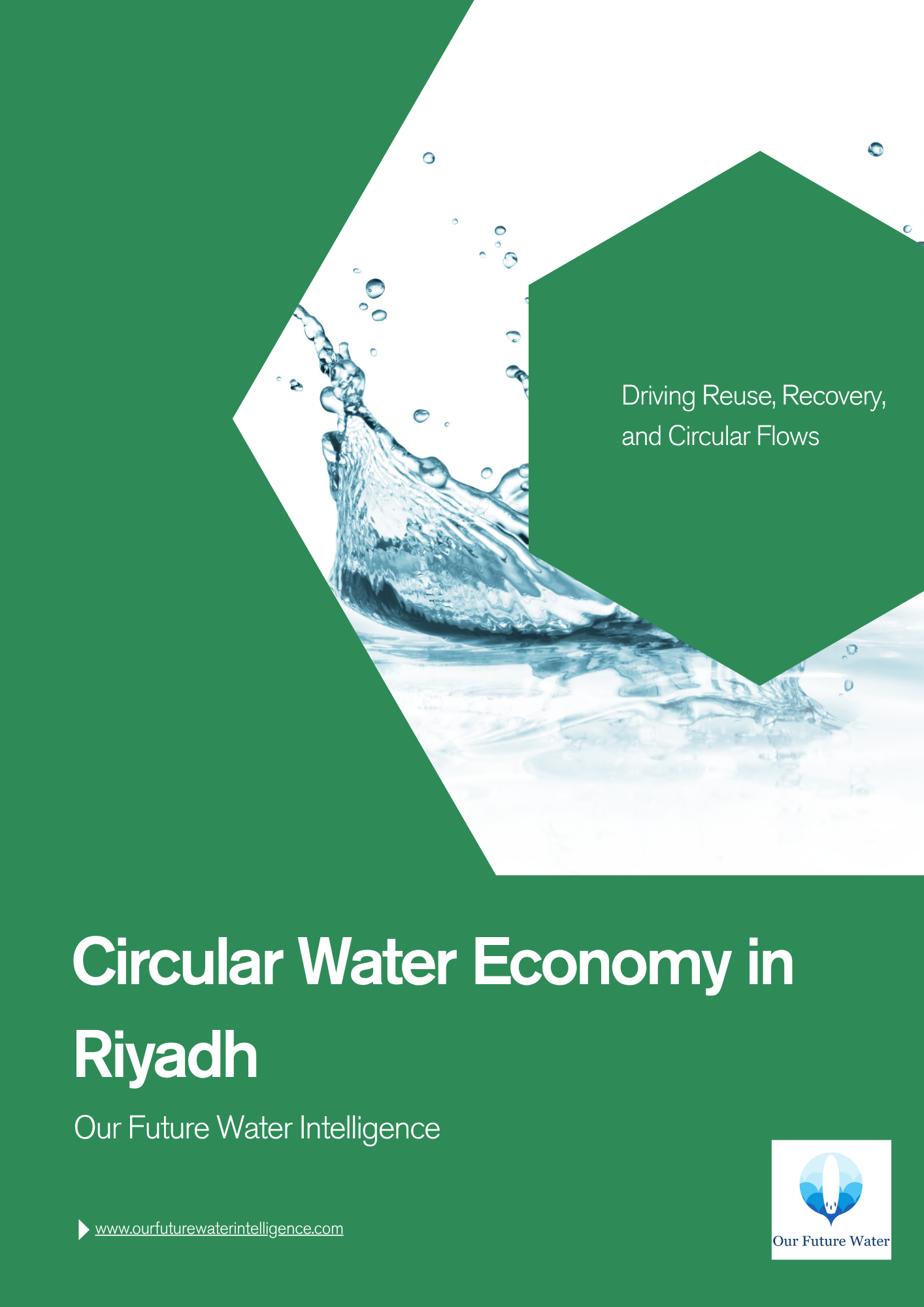Our Future Water Intelligence has released its latest publication,
Urban Water Security and Demand Management in Doha, authored by Robert C. Brears, Founder of Our Future Water Intelligence and a globally recognized authority on water security, urban resilience, and sustainability governance.
Published as Qatar strengthens its water sustainability framework under the Qatar National Vision (QNV) 2030 and the National Program for Conservation and Energy Efficiency (Tarsheed), the report provides a comprehensive examination of how Doha—one of the world’s most water-stressed cities—is advancing urban water security through integrated supply and demand management strategies.
KEY FINDINGS
-
Water Governance: Doha’s urban water management is led by the Qatar General Electricity and Water Corporation (KAHRAMAA), which integrates regulatory, economic, and technological measures under the Tarsheed program to rationalize consumption and improve efficiency.
-
Demand Management Success: Average per capita consumption has fallen from 249 m³/year (2021) to 190 m³/year (2023) through tiered tariffs, public education, and the deployment of smart metering technologies.
-
Digital Transformation: Over 420,000 smart water meters are being installed, providing real-time data to enhance billing accuracy, detect leaks, and empower consumers to monitor usage via the MyTarsheed application.
-
Non-Revenue Water (NRW) Reduction: Advanced leak detection tools—such as smart ball and helium gas technology—have reduced technical water losses to under 6%, placing Qatar among the world’s most efficient utilities.
-
Reuse and Alternative Sources: Treated Sewage Effluent (TSE) is increasingly used for district cooling and landscaping, achieving 98% potable water savings compared to traditional cooling methods and supporting national reuse targets.
-
Greywater Potential: Recycling just 5–10% of greywater could save the state between QAR 14.4–43.2 million annually in desalination and wastewater treatment costs, supported by strong public acceptance for reuse in landscaping.
-
Public Engagement: KAHRAMAA’s awareness initiatives—through the KAHRAMAA Awareness Park and educational partnerships—have built strong social buy-in for conservation, aligning community behavior with sustainability goals.
-
Energy–Water Nexus: As desalination remains the primary water source, reducing its carbon footprint through efficiency and renewable integration is essential to achieving long-term sustainability and resilience.
EXPERT INSIGHT
“Doha’s approach to urban water security demonstrates how strategic governance, advanced technologies, and societal engagement can collectively transform water sustainability in arid environments,” said Robert C. Brears, Founder of Our Future Water Intelligence. “This report provides a data-driven roadmap for policymakers, utilities, and urban planners working to secure resilient and efficient water systems in the Gulf region and beyond.”
WHAT’S INSIDE THE REPORT
- Comprehensive overview of Doha’s water supply, demand, and infrastructure performance
- Evaluation of the Tarsheed program’s role in reducing consumption and promoting conservation
- Assessment of digital innovation, including smart metering and the National Water Control Center (NWCC)
- Analysis of reuse potential, greywater management, and circular water solutions
- Strategic recommendations for achieving long-term efficiency and resilience
WHY THIS REPORT MATTERS
As one of the most water-scarce nations globally, Qatar is pioneering demand management and digital efficiency to achieve sustainable water security. Urban Water Security and Demand Management in Doha offers actionable intelligence for decision-makers seeking to strengthen urban resilience, reduce water losses, and advance circular water practices.
This report delivers authoritative insights for policymakers, utilities, and investors aiming to accelerate Qatar’s transition toward a secure, efficient, and low-carbon water future—positioning Doha as a model for sustainable water management in arid regions worldwide.



